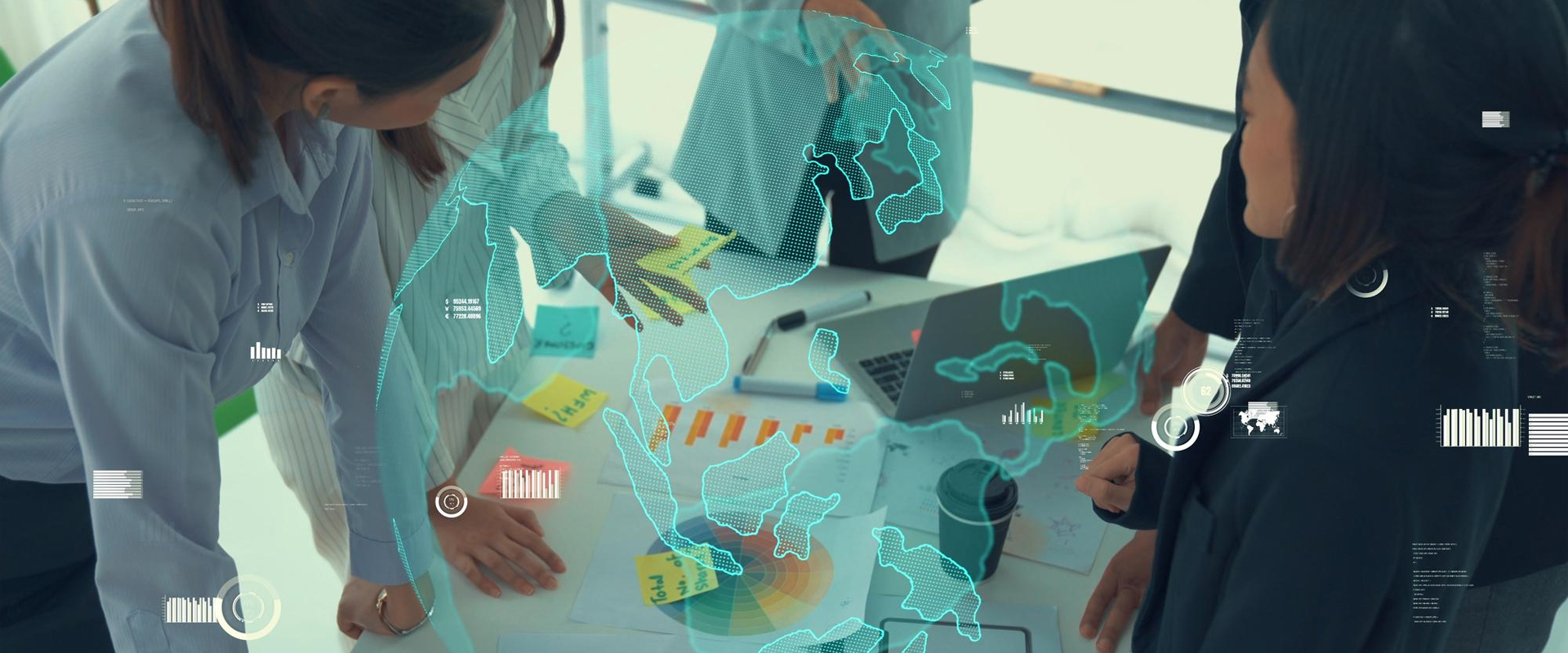

What is a Clinical Trial Management System (CTMS)?
Last Updated on January 3, 2025
Researchers use clinical trials to discover new medicines, treatments, and medical devices vital in medical studies. However, conducting clinical studies is a highly intricate process that requires meticulous planning, examination, and data management. Clinical Trial Management System (CTMS) is highly beneficial in such situations.
This blog will discuss what a CTMS clinical trial is. Moreover, we’ll explore its main parts and how it enhances the clinical trial process.
Understanding a Clinical Trial Management System(CTMS)
Clinical Trial Management System tools are essential in maintaining and organizing clinical research collections. This all-in-one tool streamlines various aspects of a clinical trial, from study setup to data analysis. As a result, we can conduct clinical trials swiftly while adhering to legal and ethical standards.
Components of Clinical Trial Management System(CTMS)
Setting up and planning a study:
CTMS software empowers researchers to design and create clinical trials. This involves selecting sites, recruitment strategies, and clinical trial protocols. Consequently, this pivotal step ensures the trial’s goals are clear and achievable.
Patient Enrollment and Recruitment:
CTMS clinical trial systems facilitate the identification of potential trial participants. Furthermore, they ensure that these participants provide informed consent. Subsequently, they diligently track the participant’s progress throughout the trial. This phase is critical for aligning with a study’s budget and timeline.
Data Management:
Clinical studies generate a significant amount of data. Furthermore, a CTMS clinical trial collects, stores, and analyzes data, ensuring its safety, accessibility, and auditability.
Regulatory Compliance:
It is essential to ensure that a clinical study follows all the rules set by regulators. Additionally, CTMS software makes it easier to send regulatory documents to health authorities by helping to create and handle them.
Management of the Site and Investigators:
The CTMS diligently tracks the site’s performance, evaluates the qualifications of investigators, and monitors their adherence to the study’s protocols. Consequently, this meticulous oversight ensures we conduct clinical research correctly and honestly.
Budgeting:
Keeping track of a research trial’s budget can take much work. A CTMS makes it possible to keep track of costs, pay agents, and file financial reports.
Monitoring and Reporting:
It is crucial to monitor the trial in real-time so that problems can be found and fixed quickly. CTMS clinical trial tools give information about different study parts through reports and dashboards, which lets people make data-based decisions.
How can CTMS be Beneficial for your Clinical Trials?
Having access to correct and up-to-date study materials
Our experience managing clinical trials for sponsors and CROs makes finding reliable, current study data challenging. However, it could be hard to get broad information, like an up-to-date site roster, or more specific information, like tracking new projects or site visit plans. Furthermore, there are better ways to do a study than this one. Having a CTMS solution lets everyone on the study team see all the information they need to do their job and make good choices.
Collaboration:
People on a study team can collaborate effectively within the CTMS. Furthermore, it also facilitates cooperation among individuals from various groups, such as sponsors, CROs, and sites. Members of the same study can work together on specific tasks, such as initiating clinical research and ensuring they all access the most current information. Moreover, sponsors, CROs, sites, and other stakeholders can readily update research tracking data.
Work Efficiency:
The clinical trial management system CTMS simplifies the process for your busy study team to plan and closely monitor the study. In contrast to other methods, it delivers effective results. For instance, an electronic visit report writing tool can automatically input details about your visit, such as study, site, date, investigator, and monitor name, and it verifies the completion of all necessary sections (unlike Word). Furthermore, once you finish a subject visit, the Payment feature can automatically generate site payment monitoring records, provided your contracts allow it.
Monitoring
The CTMS makes monitoring the most critical parts of your study management easy. These include starting the study, screening and enrolling participants, collecting documents, and visiting the site. Additionally, it helps write reports, ensures subject visit completion, and manages tasks. Moreover, it handles the clinical trial process’s issues, regulatory compliance, and financial aspects. Dashboards and data reports show graphs and score the success of one study or views that combine data from several studies.
Pre-Clinical Trial Management system — Syncora
Syncora is a pre-clinical trial management system (pre-CTMS). This meticulously crafted system is vital in researching and developing innovative medical solutions. Its primary goal is to enhance the efficiency and accuracy of the pre-clinical trial management process, all while mitigating the risks of errors and delays.
But what sets Syncora apart? Let’s explore how this remarkable tool strives to make your pre-clinical trial management more efficient, precise, and devoid of common pitfalls.
Efficiency is Key:
First and foremost, Syncora is all about efficiency. It simplifies and automates various pre-clinical trial tasks, allowing research teams to work smarter and more effectively.
Accuracy Matters:
Syncora is your trusty partner in ensuring that everything runs smoothly. It promotes data accuracy and precision, making informed consent management, patient eligibility, and tracking a breeze.
Reducing Errors and Delays:
One of its primary missions is to prevent errors and delays, which can be costly in the early stages of clinical trials. With real-time monitoring and regulatory compliance, Syncora keeps your research on track.
Fostering Collaboration:
Effective teamwork is at the heart of successful research. Syncora facilitates communication, document sharing, and task assignments among your research team, sponsors, and sites.
Financial Control:
Managing a clinical trial’s budget is crucial, and Syncora simplifies this process. It tracks expenses, manages payments, and generates financial reports to keep your trials on budget and schedule.
How to Choose the Right Clinical Trial Management System?
There are numerous factors to take into account. To evaluate a clinical study management system effectively, consider the following:
Collaboration:
Firstly, every site should be able to access the clinical trial management system. This enables web-based CTMS for simple system and data access.
Compliance:
In addition, make sure it meets all HIPAA, GCP, GDPR, 21 CFR Part 11, and other regulations’ criteria. It should also be capable of changing as compliance requirements do.
Recruitment of Patients:
Moreover, keep patient recruitment and retention data centralized in one place. Use filtering, call lists, and monitoring recruitment campaigns to assist research sites in recruiting new participants.
Financial Administration:
Furthermore, ensure the system can monitor and control all study budgets, keep track of bills, and effectively manage your payables and receivables.
Robust Reporting:
Last but not least, it should provide powerful reporting abilities, giving users the resources they need to run reports instantly, with data visualization as a bonus.
Considering these aspects when evaluating a clinical study management system ensures a comprehensive and practical assessment.
Compliance and Clinical Trial Management System(CTMS)
A Clinical Trial Management System (CTMS) is like a guardian for research. It makes sure we follow the rules. There are some essential rules, and the CTMS helps us with three of them:
General Data Protection Regulation (GDPR):
This rule is about protecting data in Europe. The CTMS helps us safeguard people’s information when researching there.
Good Clinical Practice (GCP):
GCP is all about researching correctly. The CTMS helps us follow ethical and safety rules in our studies.
Health Insurance Portability and Accountability Act (HIPAA):
HIPAA is a rule to keep personal health info safe. The CTMS helps us follow this rule when working with electronic health data.
There’s also something called “Title 21 of the Code of Federal Regulations Part 11 (21 CFR Part 11).” This is about using electronic records and signatures in a trustworthy way, and the CTMS helps us do this.
Conclusion
In summary, the Clinical Trial Management System (CTMS) is the guiding compass for today’s medical research. They bring order and efficiency, ensuring everything stays on track. Furthermore, researchers can rely on them for conducting precise, ethical, and rule-following trials. As medical science advances, CTMS clinical trials remain the key to improving things for patients worldwide.





